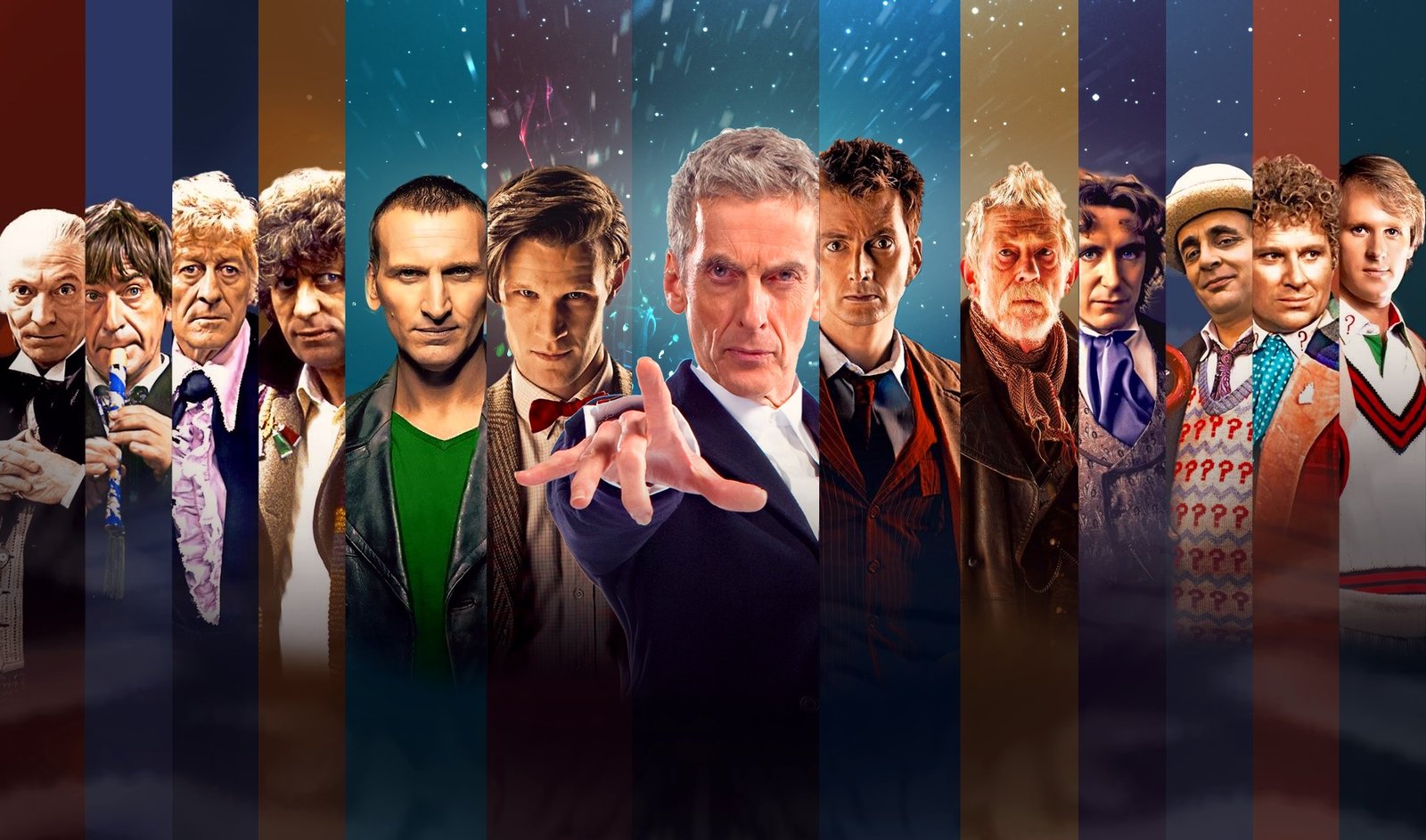Doctor Who fans always grumble. In my own case, I became aware of this when I joined the DWAS as a young teenager and received my first copy of TARDIS. That fanzine, the first of trillions I went on to read over subsequent years, absolutely ripped into The Robots of Death and into The Deadly Assassin (panned as “the highly criticised story”: it came bottom of that year’s season poll) and I was utterly bewildered. I’d loved both of them and couldn’t understand the writers’ ire. I’d watched Doctor Who for as long as I could remember, starting with Patrick Troughton when I was a pre-schooler. I’d seen every episode on broadcast, missing only Frontier in Space Part 5 (stuck in a traffic jam after going to the wizard BBC Special Effects Exhibition in the Science Museum), The Android Invasion Part 4 (party), and The Brain of Morbius Part 4 (another party). Surely fans should love Doctor Who and the Doctor Who Appreciation Society should be a society which appreciated Doctor Who?
Oh no. No no no no. I was later to learn that the programme went downhill and would never, never recover and it was all the fault of Tom Baker, Robert Holmes, Philip Hinchcliffe, Graham Williams, John Nathan-Turner, Peter Davison, Eric Saward, Colin Baker, Andrew Cartmel, Sylvester McCoy — who were all terrible, terrible men.
Well, it’s worth bearing all this in mind when turning our attention to the present era of Doctor Who: the era of Chris Chibnall and Jodie Whittaker. Fans grumble and lots of them don’t like what they’re offered. It was ever thus.
That said, there are periods of the show that have been more divisive for fandom than any others. One of these was the final three years of the classic series’ run; the other is the Chibnall years. (And, of course, both have their staunch defenders — and a good thing, too. We don’t know and can’t quantify the breakdown of opinion among the fan body; how many are pro, how many are anti, and how many are somewhere in the middle.)
Even so, lots of people have expressed very strong views about the Chibnall era: many would say it has been weighed in the balance and found wanting. I have to put my hand up and say that I don’t like it either. This is not to say that I am right or that others have to agree with me; it’s just, for the present article, to acknowledge that this strand of opinion does exist. It can be positively apocalyptic at times and predict that Part 5 of The Chase will very soon be with us, and thus that we shall witness: The Death of Doctor Who.
All this led me to ponder, to cogitate, to ruminate, and to muse. What about the mainstream viewers? What do they make of it all? Do they think Doctor Who’s as good as it always was, or do they think it’s gone off a bit? What are “mainstream viewers”, anyway?

Well, it seems to me that one way of classifying Doctor Who’s audience is like this:
- Casual viewers: people who tune in occasionally but who have no particular attachment to Who.
- Mainstream viewers: people who like Doctor Who and who might well be inclined to watch it because they enjoy it, even if they don’t see every single episode. Or people who liked it and used to watch it, even if they stopped watching it at some point.
- Fans. Well, we know a lot about what they think because websites like these concentrate on fan opinion. We’re the most faithful viewers and will nearly always stick with the programme through thick and thin. We’re an important part of the audience — but also numerically tiny. It would be surprising if there are more than a few tens of thousands of us, and very surprising if there were more than 500,000. The BBC’s well aware of the fans, but as we don’t constitute the bulk of the audience, the Beeb is probably wise not to make Doctor Who specifically for us.
I know there are different ways of interpreting data, but it’s also true to say that the viewing figures for Doctor Who aren’t great. There’s been a decline; indeed, The Timeless Children managed a consolidated audience of 4.69 million in the UK — the lowest ever for 21st Century Who. It’s hard to put any positive gloss on this. It’s hard, too, not to think that the production team and the BBC suits will be worried by such figures. If the viewing figures are to increase, the mainstream viewers are, I’d argue, the key group the programme has to attract. The fans won’t do it. Nor will attempts to attract an entirely new audience. It’s much easier to pull people back in than to range around for new viewers.
And so, the DWC has commissioned, at vast cost:
The Doctor Who Mainstream Viewer Focus Group!
(Huge fanfare.)
The results from this group have been carefully sifted, analysed, and tabulated, and we now present to you, dear reader, an utterly reliable and objective guide to mainstream viewer opinion! (Repeat of huge fanfare.)
Yes. Well. We’d have liked to commission a real opinion poll but they’re horribly expensive. Focus groups are easier. They’re also totally free from error: after all, governments and political parties use focus groups all the time to see how well their fabulous policies will play with voters. It is, therefore, quite impossible, therefore, to argue against, therefore, focus groups. Who dares to disagree?
Actually, our focus group was a bit different. They usually consist of between 8 and 10 people, sitting in a room with a policy wonk and a packet of chocolate digestives. We used a questionnaire instead. And we had a bigger sample: 35 people. This is between 3.5 and 4.3-and-a-bit larger than any other focus group. The findings will therefore be between 3.5 and 4.3-and-a-bit times more accurate. (Yes, they will. Don’t quibble.)
Also, no biscuits were supplied.
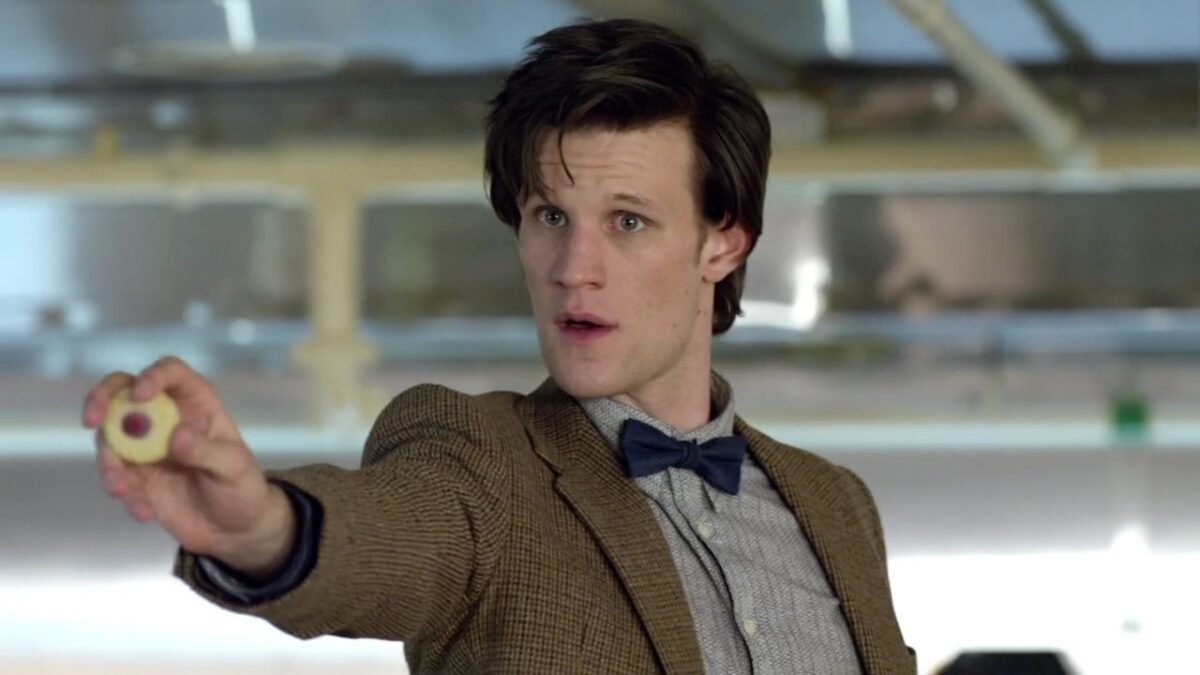
The respondents ranged in age from 18 to 83.
(For a more considered look at the quality of the evidence, see Appendix 1 below. I’d suggest that our focus group’s results do genuinely give us some sort of a picture. Maybe a blurry and out of focus picture — like Isobel Watkins’ snaps of the Cybermen in the sewers — but a picture nonetheless. It’s not sharp or pristine, it’s not perfect, but it’s still a picture. (Isobel’s snaps were blurry but they were clearly still pictures of Cybermen.)
We have to take the results with a large pinch of salt, of course.
The focus group’s questionnaire concentrated, then, on Doctor Who as it is now. (We did throw in a few questions on the past as well; it’s always fun to try to find out who people’s favourite Doctor or monster or villain is.)
The (Very Tentative) Findings!
Taking our big pinch of salt, and staring at our blurry Isobel-taken snapshot, are there any general trends that can be spotted?
Indeed there are.
General trend number one: Mainstream viewers aren’t as interested in Doctor Who as fans are.
Amazing, eh? Who’d have thought it?
Well, it’s not really very surprising. Presumably, they watch Doctor Who to be entertained; if it doesn’t entertain them, or they don’t think it’s going to, they switch off. There isn’t the loyalty to stick with the programme through thick and thin (and no reason why there should be, either).
There’s also a strong tendency to stay in the present. In other words, Doctor Who is something they may watch when a new series comes along — but there is little interest in exploring the back catalogue, even when people may have fond memories of particular stories. So, one respondent in his 60s who said he enjoyed both Genesis of the Daleks and The Talons of Weng-Chiang almost certainly won’t have seen them for more than 40 years.
(Pause to ponder on how remarkable it is to have fond memories of a television programme from more than 40 years ago.)
Interesting, too, that the good stuff seems to linger in the memory. You might deduce from this that memories of favourite eras of Doctor Who do inform people’s judgements on the present day’s output.
General trend number two: Mainstream viewers’ opinions of the programme date from when they started watching.
Not surprising, either. The classic series ended in 1989, so anyone born after that would now be in their early 30s.
Lots of people, then, were introduced to the series by 21st Century Who.

Fans in this younger demographic are presumably keen to go back and watch as much of Classic Who as they can — and that’s very easy to do now, especially with Britbox. However, non-fans in this demographic tend not to bother. Their knowledge and appreciation of Doctor Who comes solely from NuWho.
The older they are, the more Doctor Who they’ll have seen — though this again will almost all be from the original broadcasts and occasional repeats on the BBC, and not from DVD, Blu-ray, VHS, Netflix, Britbox, or whatever.
This also means that the demographic will shift the results for the answers to questions like favourite Doctor (or companion or whatever). Unless they’re at least in their early 50s, they’re not going to put down Hartnell or Troughton, and people under 30 are very unlikely to go for any of the classic Doctors at all.
General trend number three: Some mainstream viewers can be pretty conservative.
And some aren’t.
Doctor Who’s purpose is to entertain them. They prefer some styles of the programme to others and they may be — may be — rather resistant to new styles.
So, if they take the view, as one respondent put it, “The sooner Doctor Who gets back to its real job of frightening the ***t out of me, the happier I shall be,” they’re going to see the programme as being at is best when it’s scary. (Actually, quite a lot of the responses contained words to make one blush. We shall, of course, censor these very bad words.) Doctor Who should be x — which is when I liked it best — and if it isn’t x, I’m not bothered with it.
Some are resistant to other changes, too. A number stopped watching after David Tennant left. (One 18 year old commented that he was “perfect casting” and that no one could live up to him.) Particularly among those for whom Doctor Who = NuWho, the character was frequently identified with the actor who played him or her.
Perhaps for some of the audience, then, re-casting the Doctor is a bit like re-casting James Bond: Connery was the true Bond and the others are inadequate substitutes. David Tennant is Doctor Who.
There’s more on the population demographic in Appendix 2. However, nearly half the population of the UK today are too young to remember when Classic Who was on. It’s likely that this group is much less used to the idea of regeneration, of a regular change of lead actor, than the oldies are. It’s perhaps not seen by all as integral to the format. A new Doctor may well be seen less as a regeneration and more as a re-casting. If it ain’t Tennant, I ain’t bothered and I ain’t watching.
So much for general trends. What about:
The Specific Answers?

We asked:
1. What do you think of the current era of Doctor Who (the ones starring Jodie Whittaker)?
□ Superb
□ Good
□ OK
□ Not great
□ Bad
□ Other (please specify!) ____________________________________
Please add any comments. The more comments we have, the more interesting the article should be!
And the results were:
As a % of those who expressed a preference:
- Superb: 4%
- Good: 16%
- OK: 12%
- Not great: 44%
- Bad: 24%
As an overall %:
- Superb: 3%
- Good: 11%
- OK: 9%
- Not great: 31%
- Bad: 17%
- No view expressed: 29%
Some of the more interesting comments were as follows:
- “Nothing against a lady Doctor, but not Jodie… Nothing against Jodie but she’s not right.”
- “The Doctor seems to be in a constant state of confusion and uncertainty. She certainly doesn’t come across as the genius that previous Doctors have shown themselves to be.”
- “The writing and plots are very on the nose when it comes to causes, agendas… Can we occasionally just have some fun sci-fi instead?”
- “Writing is really bad. Script tries to appeal to young people completely transparently but basically stereotypes young people to the point of being insulting…” (This comment’s from a 20 year old.)
- “Like films by Mike Leigh, it’s like being preached at.”
- “The show has passed its ‘best before’ date. The last several series have been shoddy… I gave each new Doctor five episodes to hook me. Capaldi didn’t quite manage it. Whittaker didn’t get anywhere close.”
Conversely:
- “I love the changes they made and the fact that, at the start of the new series, the Doctor had a bigger group. The story writing for Matt Smith and Peter Capaldi really put me off my Doctor Who completely. I admit I started enjoying Doctor Who more under Jodie Whittaker. Doesn’t bother me that the Doctor is a female; the Doctor is an alien, after all. Jodie was a first class choice…”
- “Jodie Whittaker is an excellent actor but trialling the first female Doctor at the same time as lots of new writers really let her down. Give her a chance to shine!”
2. a) Do you watch Doctor Who at the moment?
□ Yes
□ No
□ Sometimes
Results:
- Yes: 12%
- No: 54%
- Sometimes: 33%
b) If so, what keeps you watching? If not, why did you stop watching?
Comments:
For those who are still watching, either always or sometimes:
- “Not a massive fan of the current series. There’s been the odd great episode, but most are a bit…iffy.”
- “Lost interest during Moffat’s run due to his non-delivery on his story arcs. Every time I revisit, they seem to be trying another.”
- “Still hoping for a decent plot!”
- “Too complicated, with no real story. It feels like Dr Who by numbers produced by someone that can’t count.”
- “I keep watching for enjoyment. I stopped watching Doctor Who previously because I am not a fan of the writer Steven Moffat.”
- “The relationships between companions, their families, and the Doctor gave the show a life that it doesn’t seem to have any more.”
For those who stopped watching:
- “Not happy with a female Doctor or the series bible being changed.”
- “Kids grew out of it — and were also frustrated by complex and over-self-referential storylines during the Stephen [sic] Moffat era.”
- “Programme felt like it was celebrating itself at every turn… Dialogue also bad, e.g. cringey Doctor speeches.”
- “Stories somehow seemed to lack that important quality of being human and humane.”
- “I felt the series was trying too hard to be clever and woke. It’s something I feel has plagued the show since the tail end of Matt Smith’s era.”
- “The few recent episodes I have seen have felt like a cross between BBC For Schools (too much historical/ social/ political teaching) and an A Level Media Studies film. For a series with such a huge fan base, it has often been poorly acted, with flat, uninspiring scripts.”
3. a) Do you think Doctor Who is fine as it is, or does it need to improve?
b) If you think it needs to improve, what do you think would help it to do so?
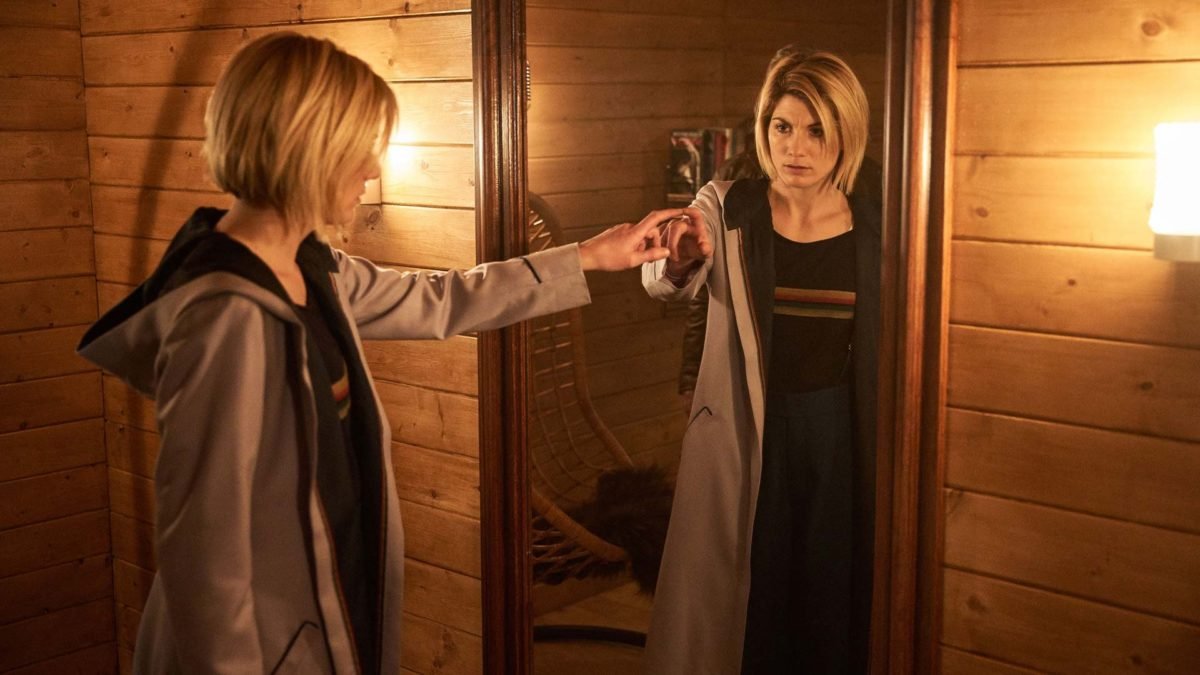
Difficult to word this question; the wording isn’t meant to imply that there’s anything “wrong” with any era of the programme, or to suggest that the present era isn’t as good as or better than the past ones. You may wish to comment on how it compares with previous eras of the programme — up to you!
Results:
- Fine as it is: 8%
- Needs to improve: 92%
Fine as it is:
“It is fine as it is! Better even! Keep it this way. Not every episode under Jodie Whittaker is going to be amazing but I agree that the series needed a makeover.”
If you think it needs to improve, what do you think would help it to do so?
The question was sometimes answered implicitly rather than explicitly…
Some of the more interesting comments include:
- “Better scripts.”
- “A change to the current line-up is probably due… More slightly off-kilter baddies. Less moralistic tales. Not every episode needs to be deep and meaningful.”
- “New actor for the role. A good and new production team who actually like the show and a return to the style of the seventies’ adventures.”
- “The Doctor needs to be more sophisticated, alien-like. No more cringeworthy attempts to sound trendy like ‘Fam’.”
- “Perhaps go back to more episodes per story so that these can develop and build interest.”
- “Better scripts, storylines and monsters. Less cleverness / look how twee we all are.”
- “One companion, not a group diluting our attention. Baddies need to be scary!”
- “Russell T Davies… seems to have the knack of really creating emotional impact on screen. Jodie Whittaker and Russell T Davies would have been a knockout.”
- “Make storylines less cryptic to allow more viewers to follow the path of the storyline… This could perhaps be achieved by returning to storylines spread out over two or three episodes. Single episode story seems to me to be too [fast] paced. Perhaps a mix of both?”
- “I’d like an older Doctor with a more measured, commanding demeanour. Not someone that will spend an hour charging about different sections of the TARDIS going through a series of ‘Aha!’ moments. Some better companions wouldn’t go amiss, either.”
- “Stories should be 3-4 episodes long to accommodate, instead of the Doctor sorting stuff out in 1 episode where the baddy’s a space capitalist or a big bear.”
- “It can stop trying to be woke. It sounds forced and makes the show sound like it’s fishing for compliments.”
4. Who do you think is the best Doctor? (If you want to nominate “equal best”, please do!)
[We then listed the Doctors.]
Results:
The figures are given as a % of the number of “best Doctor” responses given. A number of respondents had equal favourites and we gave them all the same weight. In descending order, they are:
- David Tennant: 26%
- Tom Baker: 20%
- Matt Smith: 15%
- Patrick Troughton: 9%
- Jon Pertwee: 7%
- Christopher Eccleston: 7%
- Peter Capaldi: 6%
- Peter Davison: 4%
- William Hartnell: 2%
- Colin Baker: 2%
- Sylvester McCoy: 2%
- Paul McGann: 0
- Jodie Whittaker: 0
A very different set of results from what we’d expect from a fan poll!
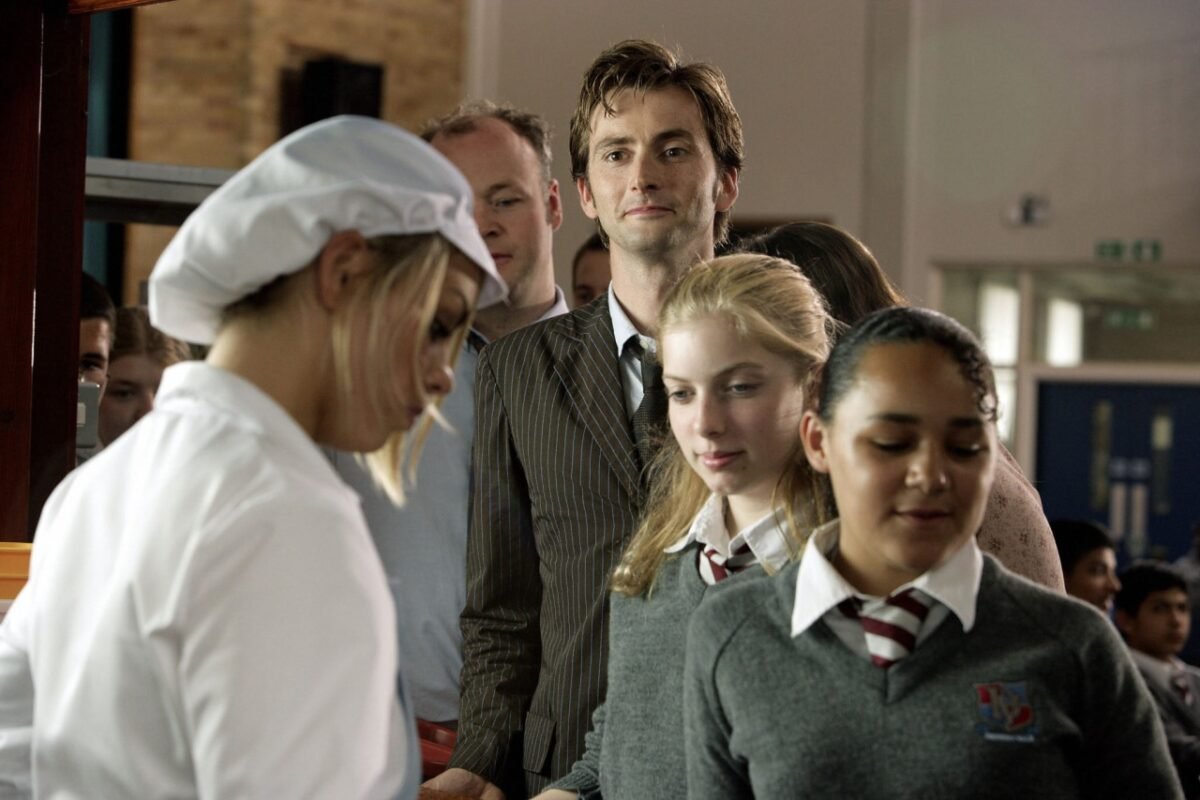
To a large extent — and this is meant as a comment, not as a dismissal — the results reflect the age of the respondents. They’re only going to vote for the Doctors they’ve actually seen. Interesting that Tennant is by far the most popular of the revived series’ Doctors. Interesting, too, how many oldies voted for him: even if they’d seen the classic series, many put him on a par with Tom Baker, or voted him sole best.
Some intriguing comments from the respondents:
- “Sylvester McCoy was intriguing. Just getting into stride when they cut it off.”
- “It’s almost impossible to separate the Doctor from the scriptwriter, so I don’t feel I can answer this fairly. All five modern Doctors have their merits; I’m not really interested in the old ones.”
5. The Doctor’s always had companions. Who do you like the best? (You can nominate more than one.)
Results:
Again, many voted for more than one “equal best”, so we gave them all the same weight. The %s are for the number of “best companion” responses given.
- Rose: 20%
- Sarah: 13%
- Amy: 11%
- Martha: 9%
- Bill: 9%
- Clara: 7%
- Donna: 4%
- Ace: 4%
- Jamie: 4%
- And 2% each for Rory, Liz, Susan, Jo, Romana I, Romana II, Nyssa and Zoe. Others were unplaced.
As with all the %s for the questionnaire’s results, the figures are rounded. That’s why they don’t always add up to 100%!
One middle aged man put a red love heart next to Lalla Ward’s name. And four love hearts next to Jenna Coleman’s.
This man shall remain nameless. We respect his anonymity.
Another commented emphatically: “Sarah Jane! My first crush!”
Note: yes, I know the Doctor hasn’t quite always had companions. I didn’t want to bore the focus group by saying “Except in The Deadly Assassin” or whatever.
6. Best villains / aliens?
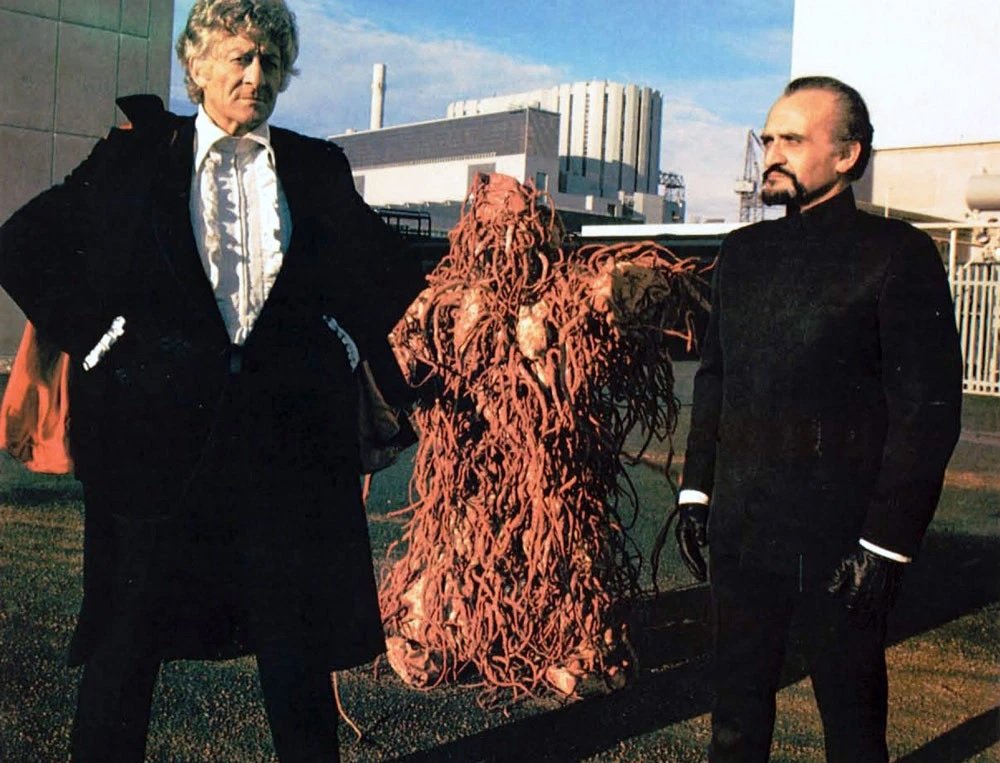
Again, many cited more than one, so we gave each answer the same weight and the %s are those of the answers given.
- The Master: 23% — Interestingly, a number specified Roger Delgado’s version of the Master (“full of menace that the others never quite reached”); one also cited Derek Jacobi’s. One specified “The Master played by John Simm, because you kept falling into kind of liking him, and then he’d shock you!”
- Daleks: 21%
- Weeping Angels: 21%
- Davros: 10%
- Cybermen: 10%
- Sontarans: 4%
- And 2% each for the Vashta Nerada, the Abzorbaloff, The Beast, The Silence, and Weng-Chiang.
7. Which era of Doctor Who do you like the best?
(You don’t need to quote the exact years! )
It’s difficult to break down these results fully because we left it up to the respondents to identify the eras. If we’d been dealing with a fan poll, it would have been easier because we could have given specific options; we couldn’t really do this for mainstream viewers because they might not be familiar with them.
The eras cited by respondents were:
- Hartnell and Troughton years
- 1966-77 [Interesting!]
- Pertwee era
- Pertwee to Davison eras
- Pertwee and Tom, plus Eccleston to Smith
- Tom Baker era
- Noughies
- Eccleston-Tennant era
- David Tennant era
- Tennant to Whittaker era
- Matt Smith era
- Eccleston to Capaldi
- 17% expressed no preference.
However, we can categorise the identified “best eras” as follows:
30% for the classic era.
70% for the nu-Who era.
When an era for NuWho was explicitly cited as the best, even if it was an equal best, we can break down the figures by allocating them as a % to each Doctor. These figures a) give equal weighting to all preferences expressed, and b) are a % of the total of those expressed preferences.
- Eccleston: 25%
- Tennant: 46%
- Smith: 21%
- Capaldi: 7%
- Whittaker: 4%
As we’ve mentioned, the UK’s demographic means that there’s going to be a weighting towards NuWho because of the proportion of the population who are too young to have seen any of the classic series.
8. Any other comments about Doctor Who? (Say anything you like!)

- “It’s high time women of colour were given these starring roles. Why do they always have to wait? First it’s men in the roles, then (white) women are finally allowed a chance, but women of colour are always right at the bottom of the pile, if they always have to wait for white women and black men to be allowed through the gate first…”
- “I am intensely relaxed about what s/he looks like. The Doctor is after all a fictional alien.”
- “I think the show has had its day and should be cancelled.”
- “I so want to like it now but just can’t.”
- “There’s still the vestige of a good show here. It just needs to get a grip and go back to good storytelling, rather than telling us how clever and woke the writers are.”
- “I think everyone who works on Doctor Who tries to reinvent the wheel, when they really don’t need to. DW has an established good vs baddies format, alternating hard sci-fi with historical adventures. That’s all you need, really.”
- “It seems like a national treasure that keeps going wrong in different ways. I really want to enjoy it but I just find the new episodes too irritating to get into… If I heard that it was going in some bold new direction, I would be very interested in watching again… I find it hard to determine who their target audience is.”
- “I think the script writers and producers need to remember that Dr Who should be old-fashioned family viewing. We need exciting, fast moving plots with plenty of special effects, monsters and narrow squeaks. No preaching, teaching or plots so complicated the audience can’t follow the story.”
- “Show has always been better as a ‘made you think’ than a ‘this is how you should think’.”
Well! Well, well, well.
There’s a lot here to think about. Having considered all this, I think it’s possible to draw –
Some Tentative Conclusions
Even though we need to add a big pinch of salt, we could suggest the following:
1. The mainstream viewers don’t generally see the Jodie Whittaker era as a particularly strong period for the show.
There are some who are very much in favour but the majority don’t see it as any more than “OK”. The most commonly expressed criticism is that the scripts need to be improved.
Jodie Whittaker’s performance is not generally singled out, either one way or another. When there was some (occasional) criticism of her portrayal of the Doctor, it’s considerably less marked than it is in fan opinion. She received no votes for “favourite Doctor”. We can’t conclude that she’s therefore disliked; it may well be that many think she’s very good, even if not quite the best.
Only a small minority were concerned about the change of gender. This doesn’t, then, seem to be a major concern for mainstream viewers.
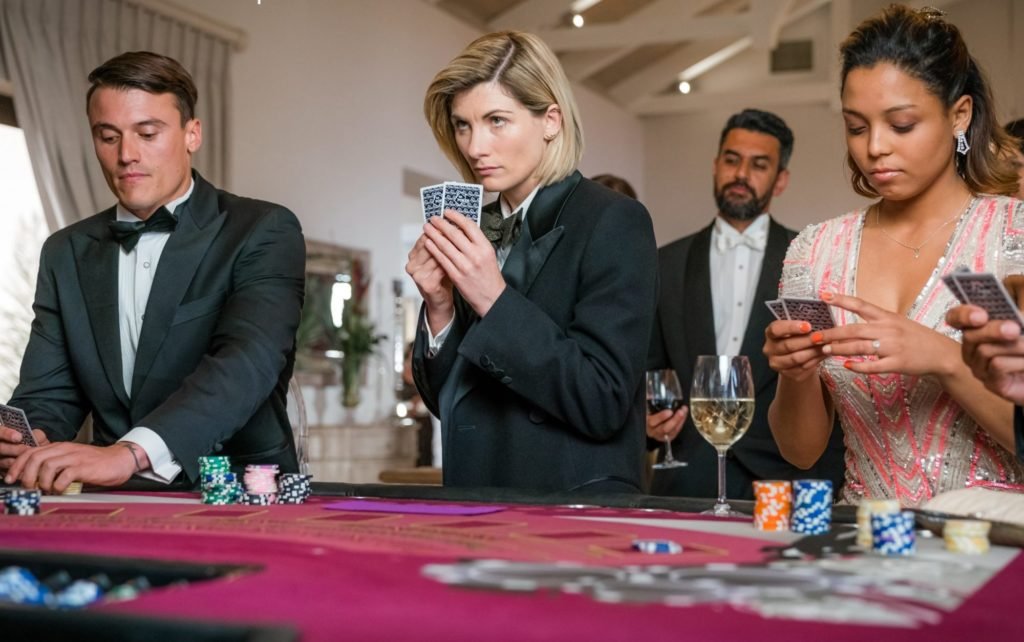
As well as concern over the quality of the scripts, a big proportion criticised what they termed the series’ “political” message or “preaching”, which was often seen to be unnecessary or irritating. Just over a quarter of respondents specifically mentioned this. Not a majority, but a big proportion nonetheless.
Quite a few disliked having more than one companion; some felt that the acting was not good.
2. Where they expressed a view, quite a few saw the Moffat era as problematic.
Some felt that the series declined under Steven Moffat and/ or was better when Russell T Davies was at the helm. Many thought that the programme declined once Davies (and Tennant) left.
3. For those who watched Doctor Who in the 20th Century, there was no particular preference for classic-Who over NuWho.
Again, this is different from trends in fan opinion. While many fans like both Nu- and Classic-Who, there are those who strongly favour one over the other.
This was not a view expressed by mainstream viewers. While some said they didn’t know about or weren’t interested in the classic series, no one was actively negative about it.
And finally:
Obviously, we have to be very careful about jumping to firm conclusions. The focus group can give us no more than a snapshot of mainstream viewer opinion. Not meaningless, but not cast-iron, either.
Even so, and being very cautious, it does look as though we can perhaps see where things may need to change for Doctor Who to increase its audience and bring back the mainstream viewers. One might say that the programme has always taken a moral stance — but that’s rather different from a political stance. About a quarter of respondents specifically cited the “message” thing, and found it irritating.
The casting of the Doctor was rarely mentioned. Neither was whether the part should be played by a man or a woman.
The biggest criticism?
The quality of the scripts.
Appendices
Huge thanks to everyone who took part in the survey, and to my fellow DWC writers for their help.
Appendix 1: The Quality of the Evidence
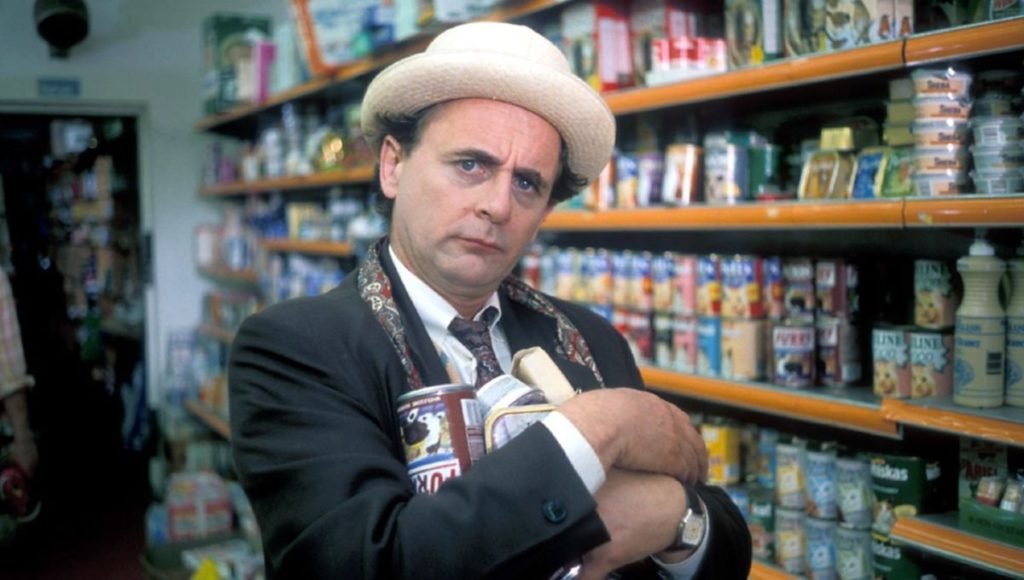
The only truly reliable survey of opinion is to ask everyone involved. This is, of course, impossible. As a result, two methods of sampling have emerged: opinion polls and focus groups. Neither is totally accurate, though it’s probably true to say that opinion polls give more reliable results. Even then, as you know without any pompous pontificating from me, they can be way off. If they were reliable, we’d have had President Hillary Clinton, Prime Minister Ed Miliband, and the UK would still be in the EU.
I’d tentatively advance the view that our focus group gives a reasonable snapshot of opinion, even if we have to be cautious about pushing the evidence too far. It’s a much bigger sample than a focus group normally has (though it’s much smaller than an opinion poll’s would have been); I also tried to be cautious in not asking leading questions: I genuinely wanted to know what people thought and had no axe to grind. I hope I succeeded.
Something that struck me as the results came in was that the same sort of comments came up, again and again. It was possible to see some trends emerging. I suspect — and no more — that a bigger sample would have produced more of the same trends, rather than anything radically different.
The respondents were all adults; the youngest was 18 and the oldest was in her 80s. Even here we can’t be certain, as the only information they were asked to give about themselves were their names and ages, and that was voluntary: some gave neither. The sample should probably have included some younger groups — although a) people aged between 5 and 18 actually make up about 11% of the UK population, and b) you could say that adults are more likely to influence any household viewing (Doctor Who post-2005 was lauded as bringing back family viewing). On the other hand, the potential Doctor Who audience needs to draw in children. On the other other hand, if many more children were watching, that would up the viewing figures, but by nothing like as much as bringing back adult, mainstream viewers. There just aren’t enough children, you see.
Appendix 2: General UK Demographics
These are going to have an impact on any survey. The figures have been rounded.
19% of the UK’s population are old enough to have watched any of the series since it began.
If you were 5 in 1963, you’d be 63 now. We don’t have the stats available for the percentage of people in the UK aged 63 or over; we only have them for people aged 65+: 18.56%.
19%, with rounding, or 12.39 million people.
(Pre-schoolers may have watched in 1963 but they probably won’t now remember Kal, Za, or the petrified forest on Skaro.)
36% of the UK’s population are old enough to have watched at least some of Classic Who, but are not old enough to have seen all of it.
If you watched Survival when you were five, you’d have been born in 1984. So you’d be 37 now.
As we’ve reckoned the age group who could have seen Who from its start are reckoned above to be 65 or older:
This 36% tranche must mean anyone aged between 37 and 64: 23.25 million people.
(In other words, those, like me, who are in their prime. Portly people with grey hair who slow down the queues at conventions with their shuffling and their shambling. We’re why it takes you so long to get your autographs.)
47% — almost half — of the UK’s population are too young to have watched any of Classic Who (unless they were pre-schoolers).
That’s because they’re under 37. They number 31.1 million.
Extraordinarily, then, half of the UK — nearly — is too young to have watched any classic-Who when it was first on.
(Figures come from the 2011 census. The findings of the 2021 census have yet to be published.)
